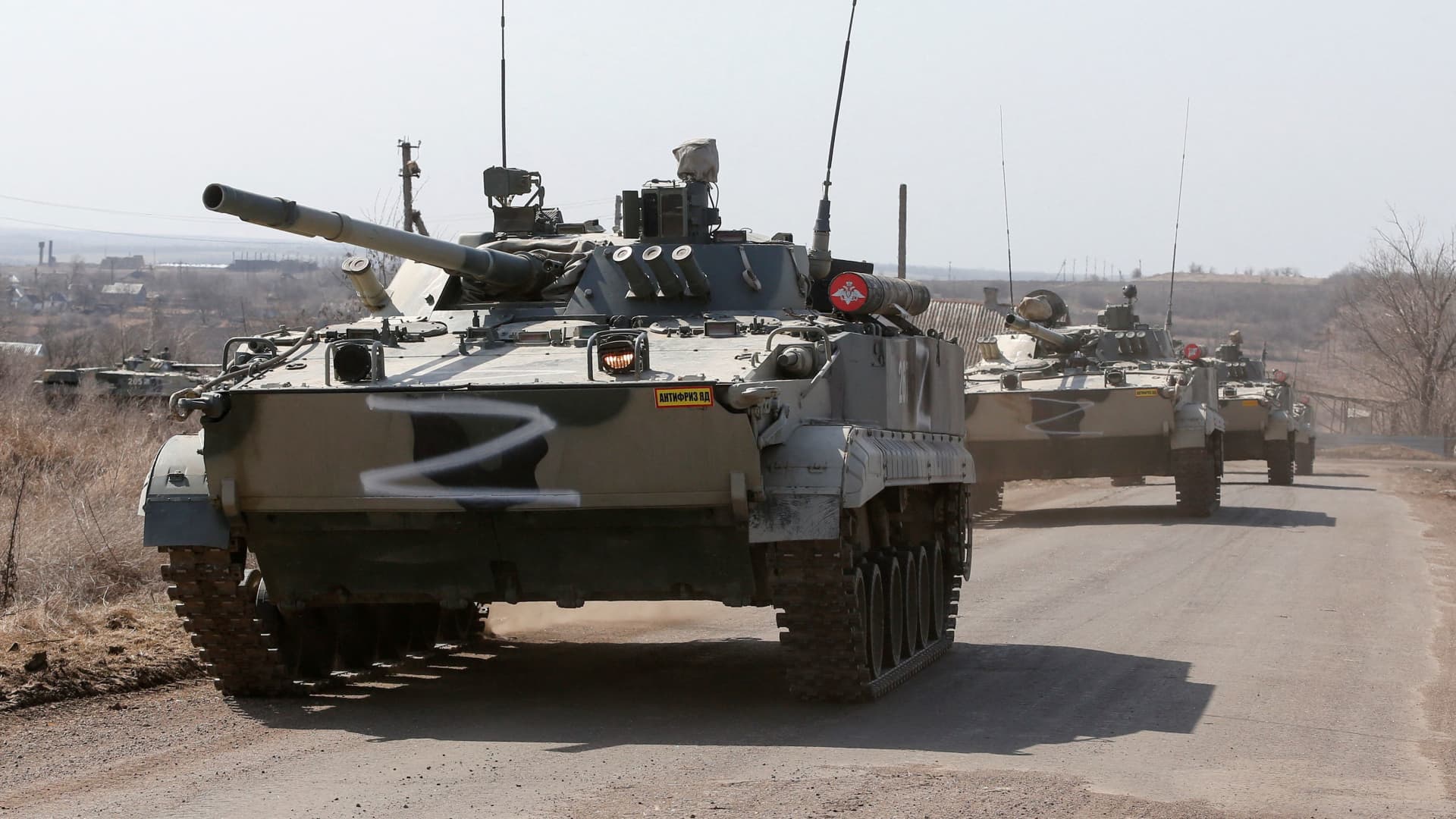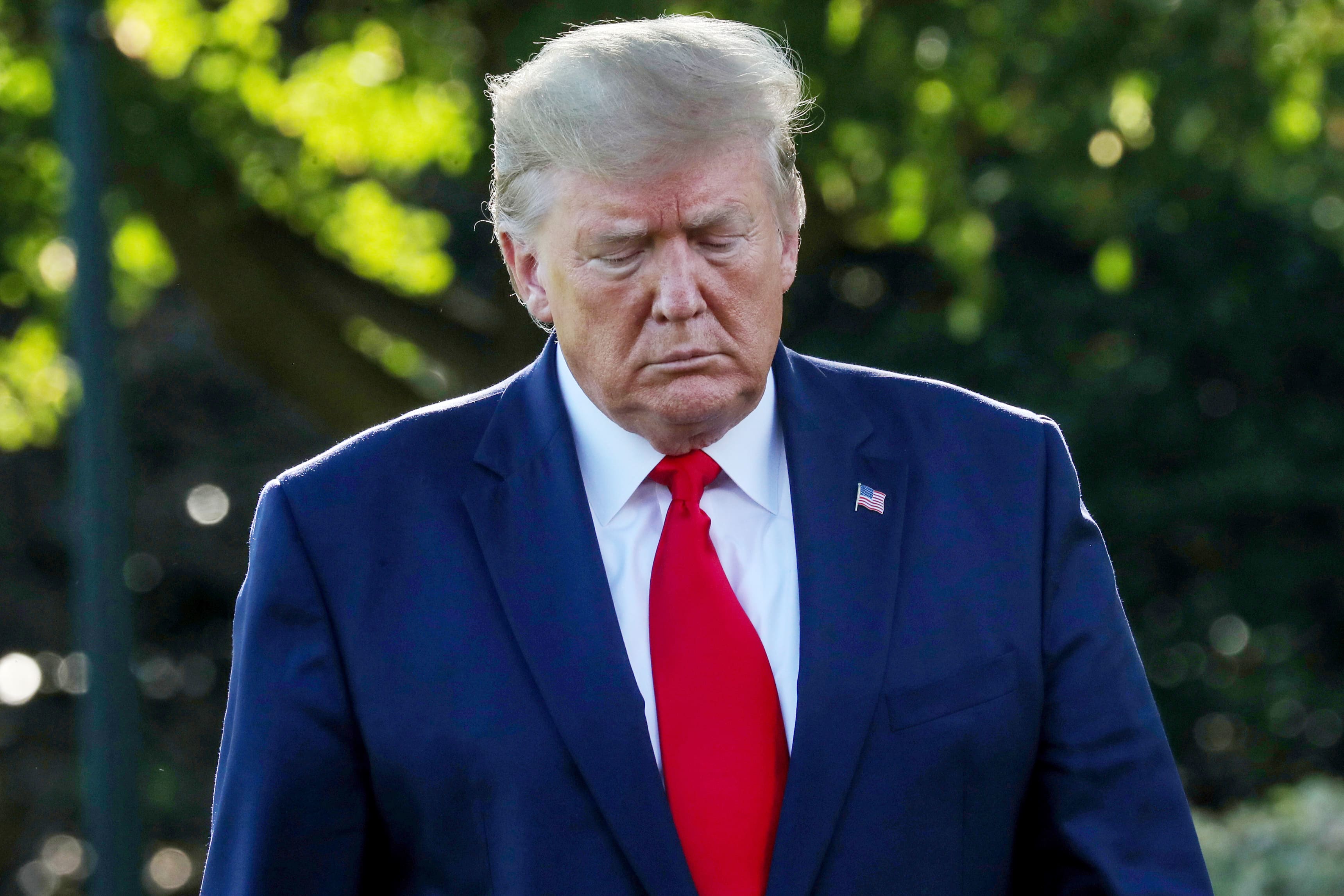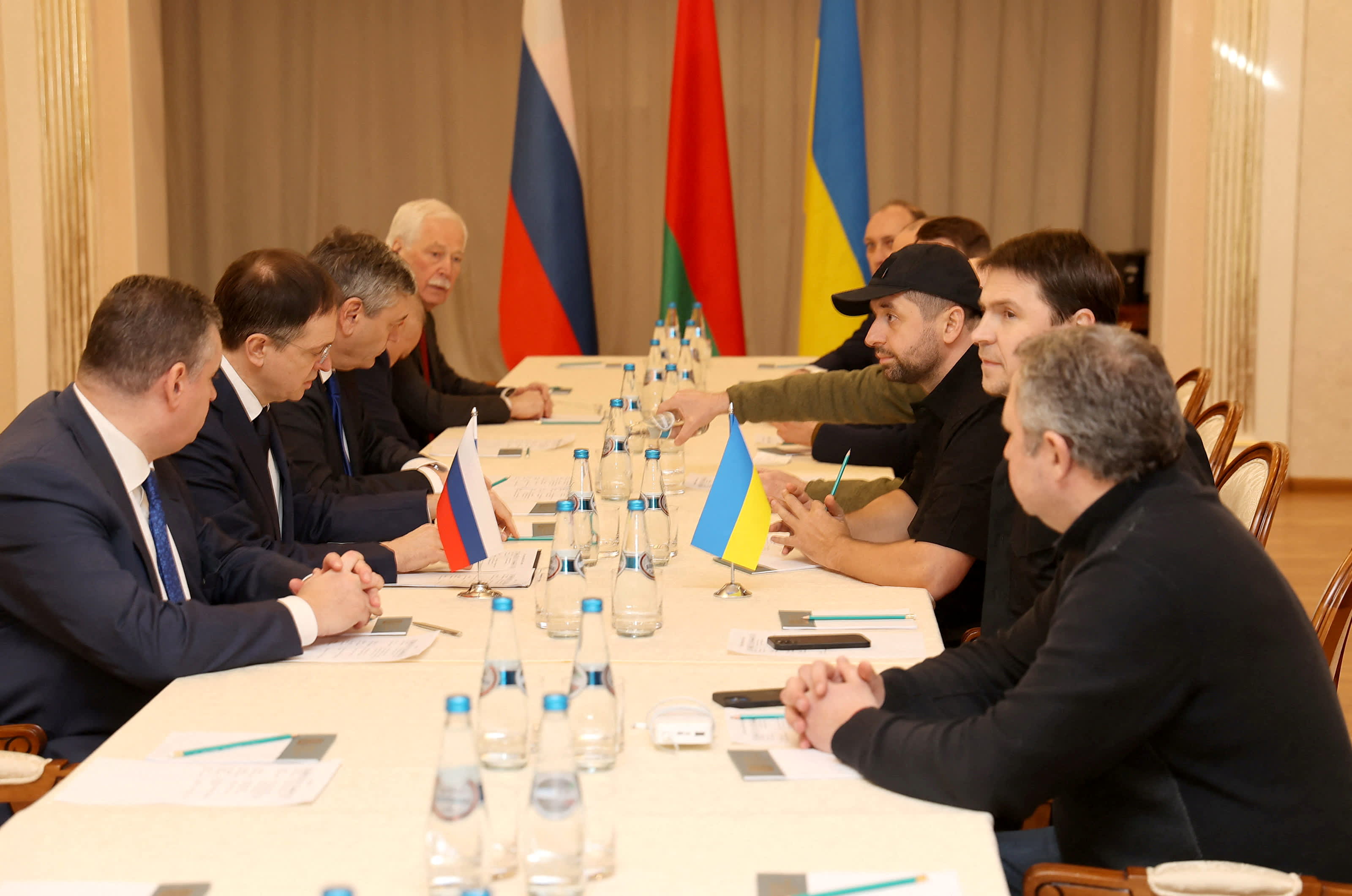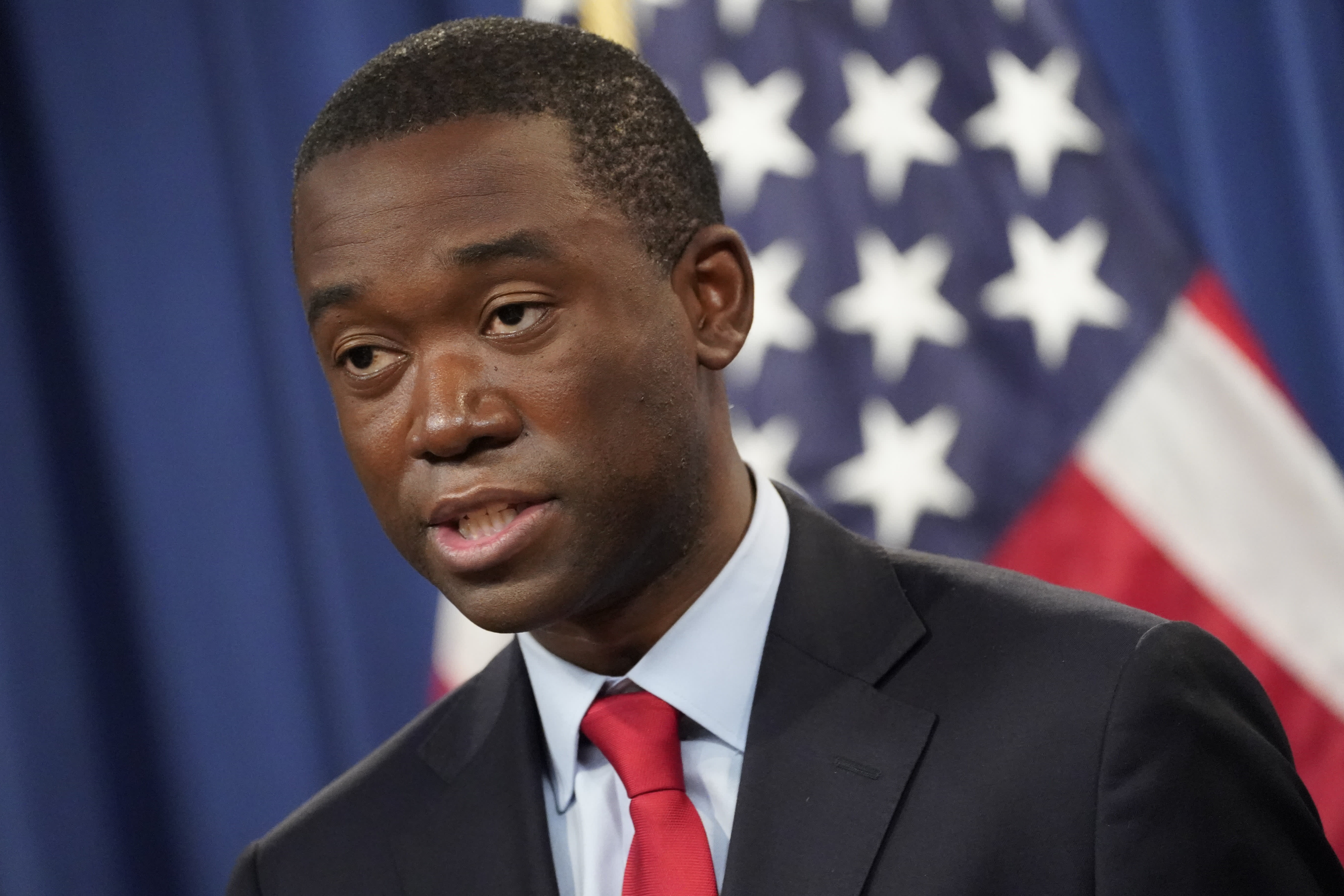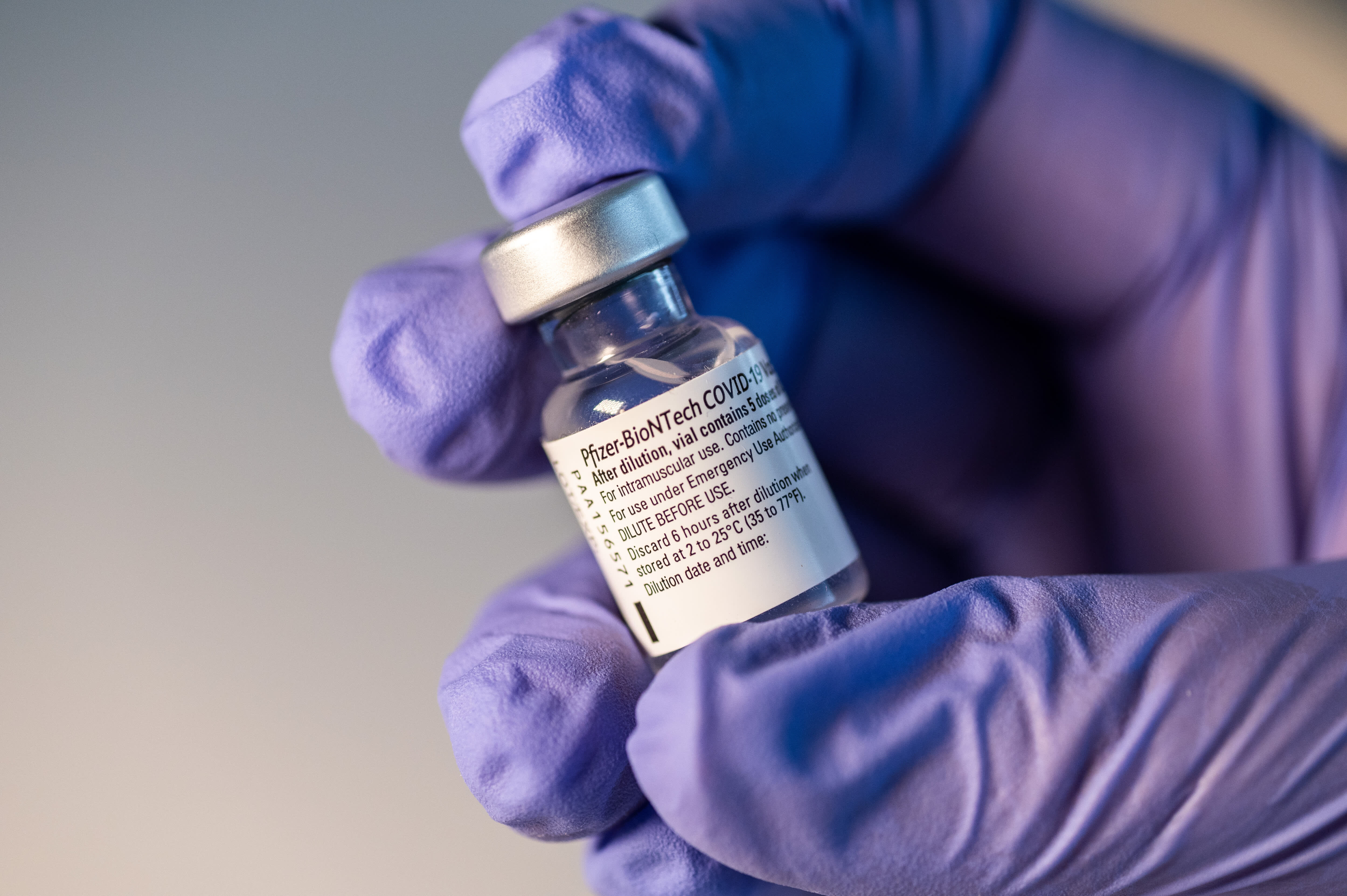The world reacts as Russia's Putin sends troops into eastern Ukraine
The decision from Russian President Vladimir Putin to order forces into separatist regions of eastern Ukraine has drawn international condemnation.
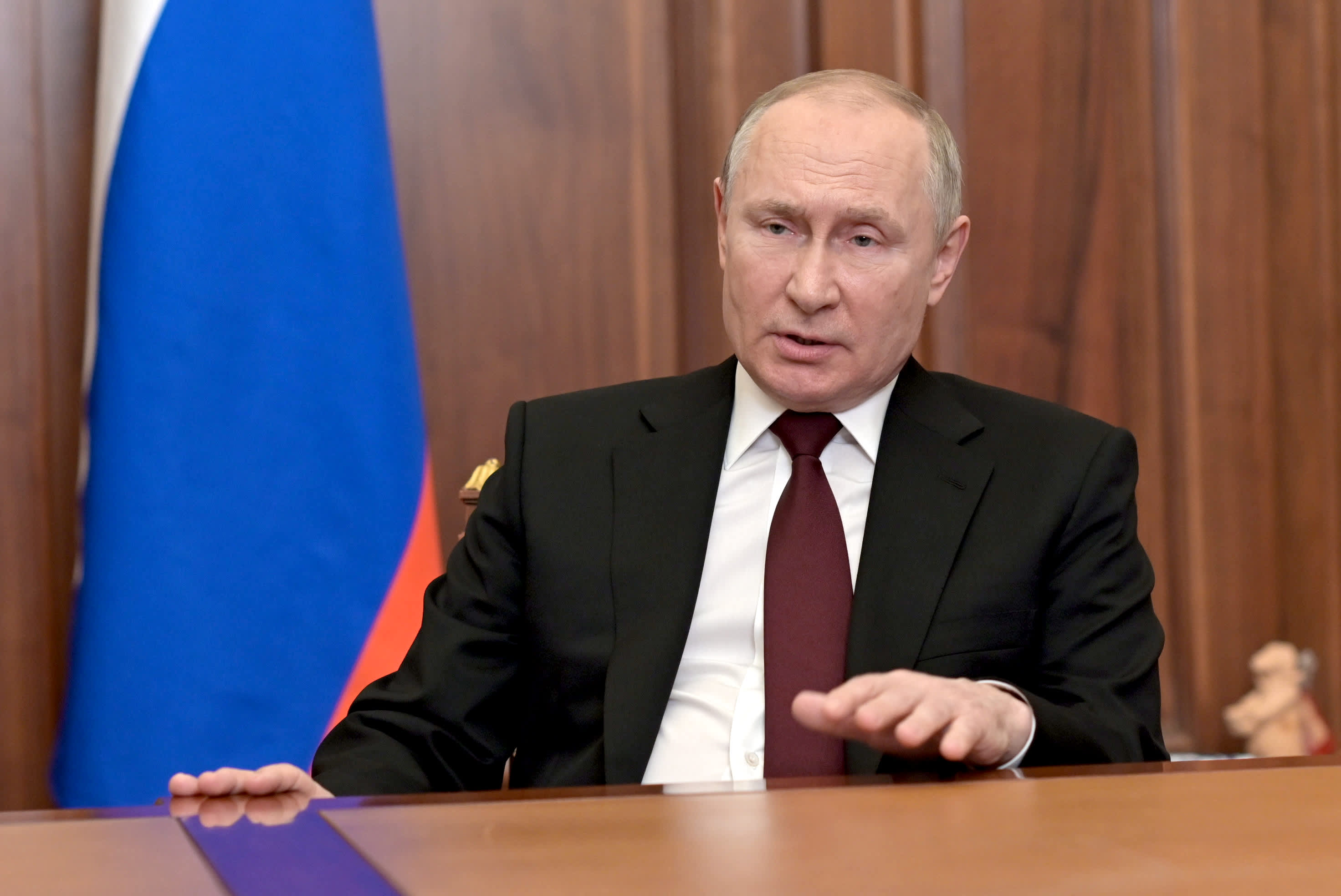
Russia's President Vladimir Putin addresses the nation on the recognition of independence of the Donetsk and Lugansk People's Republics on February 21, 2022.
Alexei Nikolsky | Tass | Getty Images
The decision by Russian President Vladimir Putin to order forces into separatist regions of eastern Ukraine has drawn international condemnation, with many world leaders threatening economic sanctions and others decrying a violation of international law.
Putin on Monday formally recognized Luhansk and Donetsk as Russian-backed separatist-controlled regions in Ukraine and sent troops to the areas to "maintain peace."
The directive appeared to dash any remaining hopes of averting a major conflict in Europe and kickstarted a frenzied scramble by heads of government around the world to respond.
It comes after months of heightened tensions over Russia's military deployment on the borders of Ukraine, which had prompted warnings of a significant number of casualties, energy shortages and a major risk-off event in financial markets.
Global stocks tumbled on Tuesday morning, while oil prices surged on the news.
The world reacts:
Ukraine President Volodymyr Zelenskyy said in a televised address on Tuesday that his government won't react to provocation from Russia, but added that "we will not give anything to anyone."
"We're dedicated to diplomatic means of solving this issue. We're not reacting to any provocations," Zelenskyy said. "This is our choice. We are on our land. We're not afraid of anyone and everyone," he said, according to a transcript by NBC News.
Ukrainian President Volodymyr Zelenskiy speaks during the annual Munich Security Conference, in Munich, Germany February 19, 2022.
Andreas Gebert | Reuters
U.S. President Joe Biden said on a call with Ukraine's Zelenskyy that he "strongly condemned" Russia's decision to recognize Luhansk and Donetsk as breakaway regions, the White House said.
A separate statement noted that Biden had discussed with French President Emmanuel Macron and German Chancellor Olaf Scholz how to coordinate their next steps.
Biden signed an executive order that prohibits new investment, trade and financing by U.S. persons to, from, or in the so-called Donetsk People's Republic and Luhansk People's Republic regions of Ukraine.
U.S. President Joe Biden signs an executive order to prohibit trade and investment between U.S. individuals and the two breakaway regions of eastern Ukraine recognized as independent by Russia, at the White House in Washington, U.S., February 21, 2022.
The White House | Reuters
"To be clear: these measures are separate from and would be in addition to the swift and severe economic measures we have been preparing in coordination with Allies and partners should Russia further invade Ukraine," White House press secretary Jen Psaki wrote in a statement announcing the executive order.
Secretary of State Antony Blinken said via Twitter on Tuesday: "Russia's move to recognize the 'independence' of so-called republics controlled by its own proxies is a predictable, shameful act. We condemn them in the strongest possible terms."
U.K. Prime Minister Boris Johnson on Monday said Putin's move was "plainly in breach of international law [and] a flagrant violation of the sovereignty and integrity of Ukraine."
Johnson said the U.K. would do everything it can to stand by the people of Ukraine and promised a "very robust" package of sanctions.
U.K. Foreign Minister Liz Truss said via Twitter that Britain would be announcing new sanctions on Russia "in response to their breach of international law and attack on Ukraine's sovereignty and territorial integrity."
While U.K. Health Minister Sajid Javid said Tuesday we are "waking up to a very dark day in Europe."
"It's clear from what we've already seen that Putin has decided to attack the sovereignty of Ukraine and its territorial integrity," he told Sky News. "From the reports I think we can already tell that he's sent in tanks and troops. From that you can conclude that the invasion of Ukraine has begun."
European Commission President Ursula von der Leyen said the recognition of two separatist territories in Ukraine was a "blatant violation of international law, the territorial integrity of Ukraine and the #Minsk agreements."
She added: "The EU and its partners will react with unity, firmness and with determination in solidarity with Ukraine."
EU Commission's President Ursula von der Leyen holds a press conference ahead the G20 and the COP26 (Glasgow Conference) in the Berlaymont, the EU Commission headquarter on October 28, 2021 in Brussels, Belgium.
Thierry Monasse | Getty Images News | Getty Images
French President Emmanuel Macron condemned Putin's move to recognize the separatist regions and called for an emergency meeting of the U.N. Security Council and European sanctions.
While German Foreign Minister Christian Lindner said via Twitter on Monday: "With the breach of international law, #Putin isolates itself to the detriment of the Russian people. He will achieve that #NATO and #EU come closer together as communities of values. United in solidarity with #Ukraine and trust in the law."
NATO chief Jens Stoltenberg condemned Russia's recognition of Luhansk and Donetsk in Ukraine, saying the move "erodes efforts to resolve the conflict" and "violates Minsk agreements."
"NATO supports Ukraine sovereignty [and] territorial integrity. We urge Moscow to stop fuelling conflict & choose diplomacy," he added via Twitter.
NATO Secretary General Jens Stoltenberg speaks during a press conference on the second day of a NATO Defence Ministers meeting at the NATO headquarters in Brussels, on February 17, 2022.
Kenzo Tribouillard | AFP | Getty Images
U.N. Secretary-General Antonio Guterres said he was "greatly concerned" by Russia's decision on the status of certain areas in eastern Ukraine. "We remain fully supportive of the sovereignty, independence & territorial integrity of Ukraine, within internationally recognized borders," he added.
Meanwhile, China, one of Russia's closest allies, did not take sides, calling on all countries to solve international disputes "by peaceful means."
China's U.N. Ambassador Zhang Jun told the U.N. Security Council that the current situation in Ukraine was "the result of many complex factors."
Zhang Jun, China's permanent representative to the United Nations, speaks at a Security Council high-level open debate on climate and security at the UN headquarters in New York, Sept. 23, 2021.
Xinhua News Agency | Xinhua News Agency | Getty Images
Japan on Tuesday said it was ready to join the U.S. and other G-7 countries in slapping economic sanctions on Russia, with Prime Minister Fumio Kishida describing the decision to order troops into two breakaway regions as "unacceptable and a violation of international law."
India's ambassador to the U.N. TS Tirumurti said the Russia-Ukraine situation was a matter of "deep concern" and called on all sides to show "restraint" in the face of escalating tensions.
"The immediate priority is de-escalation. We call for restraint on all sides. We're convinced that this issue can only be resolved through diplomatic dialogue," T.S. Tirumurti said.
Australian Prime Minister Scott Morrison said the suggestion that Russian troops may be entering Ukraine to maintain peace was "nonsense."
"While I hope for the best in terms of the diplomatic efforts that are being pursued … we cannot have threats of violence being used to seek advantage of one nation's position over others," Morrison said, according to ABC News.
He added: "The moment that other countries put in place strong and severe sanctions on Russia, we will be in lock step with them."

 Koichiko
Koichiko 







